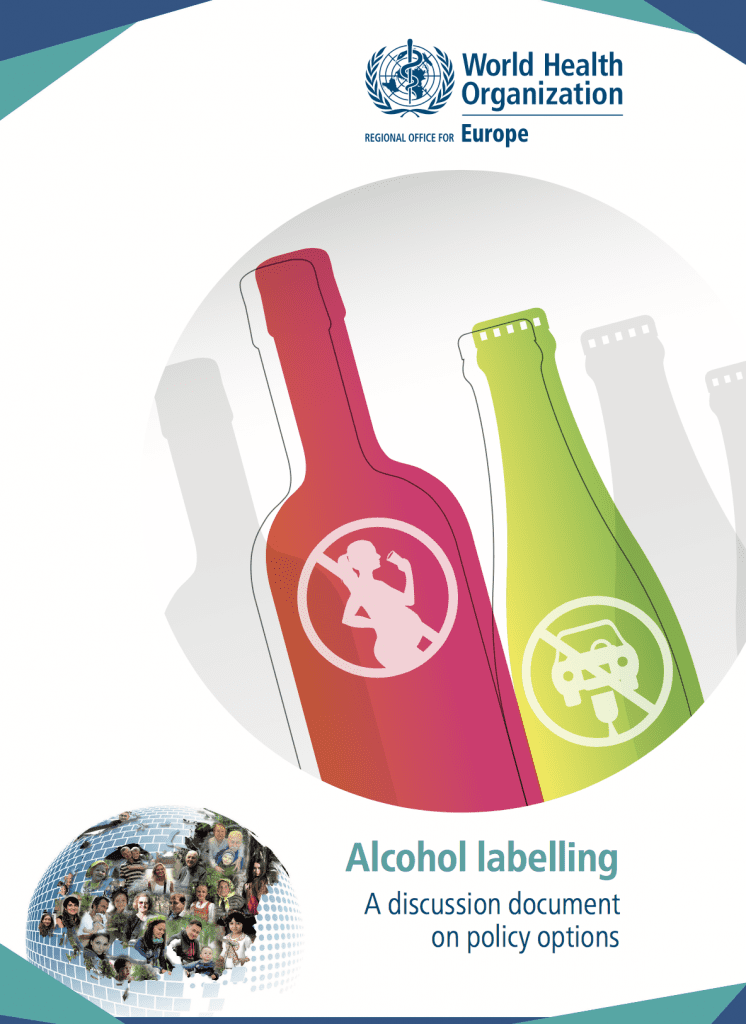EU: Presidency Discusses Alcohol Labelling Policy Options
European Union presidency discussions consider policy options for alcohol labelling
One of the priorities of the 2017 Estonian Presidency of the Council of the European Union is the reduction of alcohol-related harm in Europe. In particular, Estonia will address cross-border alcohol policy issues, including advertising and labelling of alcoholic beverages.
 In advance of the informal meeting of ministries of health in Tallinn on 21 July 2017, WHO Europe prepared a report on the topic as a discussion document. It presents an overview of the evidence and the policy options available for placing warning and product labels on alcoholic beverage containers.
In advance of the informal meeting of ministries of health in Tallinn on 21 July 2017, WHO Europe prepared a report on the topic as a discussion document. It presents an overview of the evidence and the policy options available for placing warning and product labels on alcoholic beverage containers.
Alcohol labelling could be considered part of a comprehensive alcohol policy strategy. In the European action plan to reduce the harmful use of alcohol 2012–2020, 2 of the options for action to reduce the negative consequences of alcohol use and alcohol intoxication are the introduction of warning labels on alcoholic beverage containers, and product labelling similar to that used for foodstuffs (including alcohol and calorie content, additives and allergens).
Such labelling helps to raise awareness of alcohol-related harm and ensure that consumers have access to complete information on product content and composition in order to protect their health and interests. The WHO/Europe discussion document provides evidence and arguments for making alcoholic beverages adhere to the same requirements as those for food products.
Mandatory labelling policies in few WHO/Europe Member States
The most recent available data for the WHO European Region, collected in 2016, show that labelling is not required in the majority of Member States. Thirteen Member States reported that health warning labels are mandatory on containers/bottles of alcoholic beverages at the national level. Between 13 and 15 Member States, depending on beverage type, require that consumer information about calories, additives, vitamins and microelements be displayed on labels.